What really makes a good BioWare game?
What core value make a BioWare game, and what might that mean for Anthem?
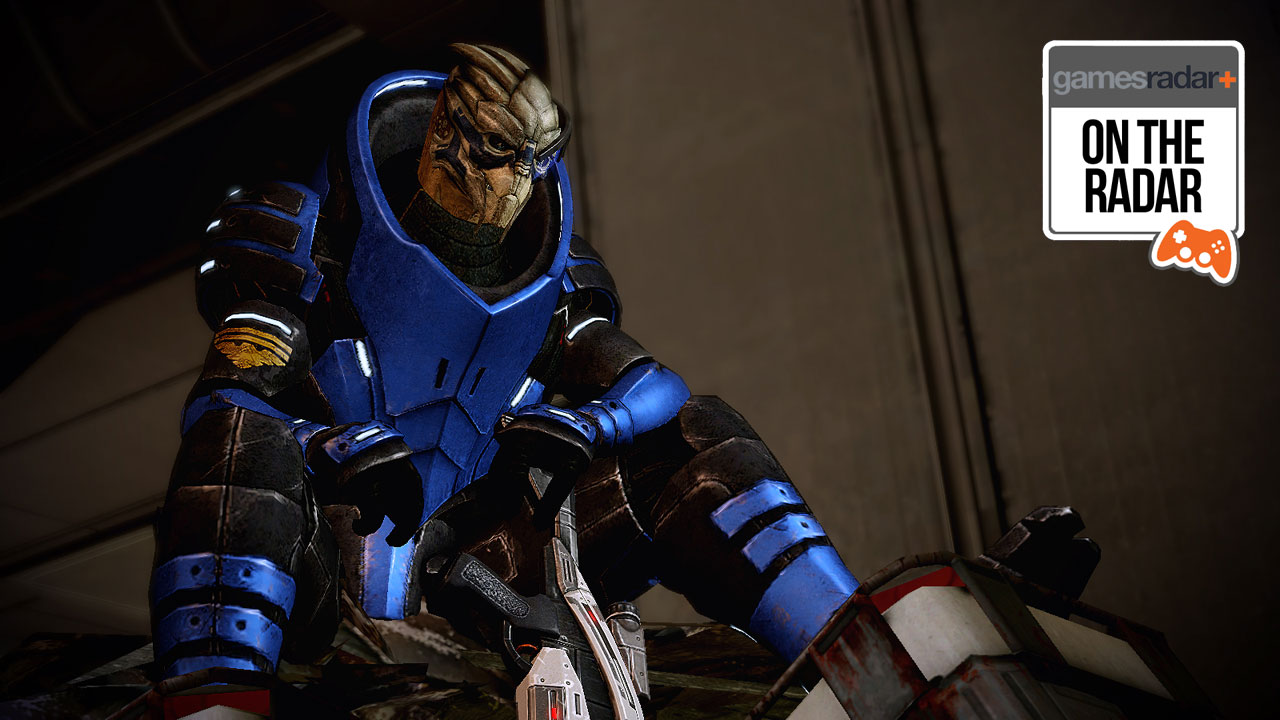
There are few developers that have the pulling power of BioWare. With Anthem game on the horizon we thought it best to look back over the studio's history and attempt to pinpoint this: What it is that makes a good and memorable BioWare game?
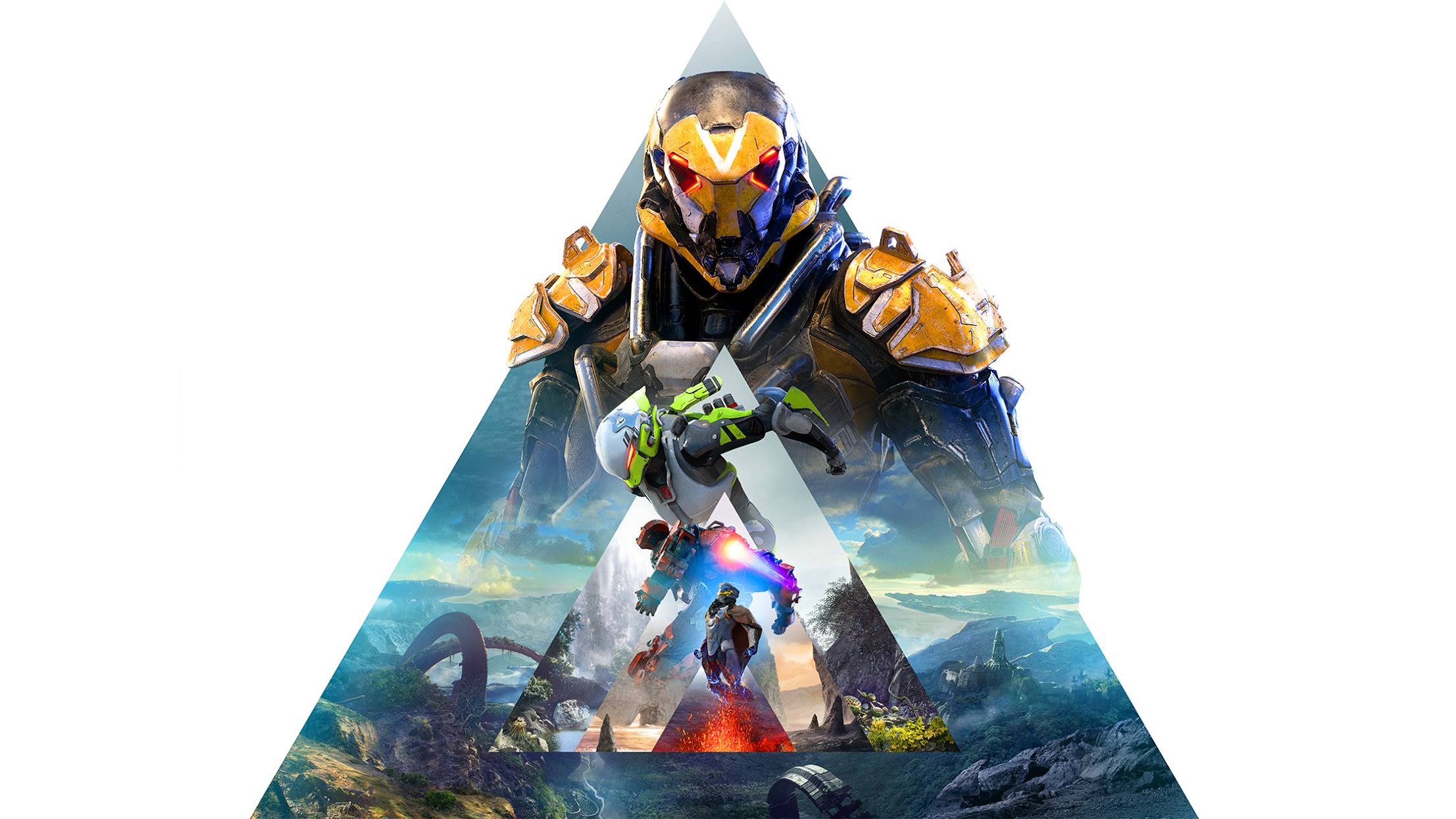
Check out the On The Radar hub to find all of our in-depth Anthem coverage.
Because, whichever way you slice it, there’s a sense of spectacle surrounding all of its releases, and you can probably thank Mass Effect for that. But stop to think about it, and you’ll realise that the most interesting thing about BioWare is not the worlds it creates or the stories it draws gamers of all genre-persuasions to indulge themselves in, but instead the fact that for its near-three decades of existence it has managed to rigidly stick to certain core values for all of its games.
So what, then, makes a BioWare game, and what might that mean for Anthem?
Storytelling
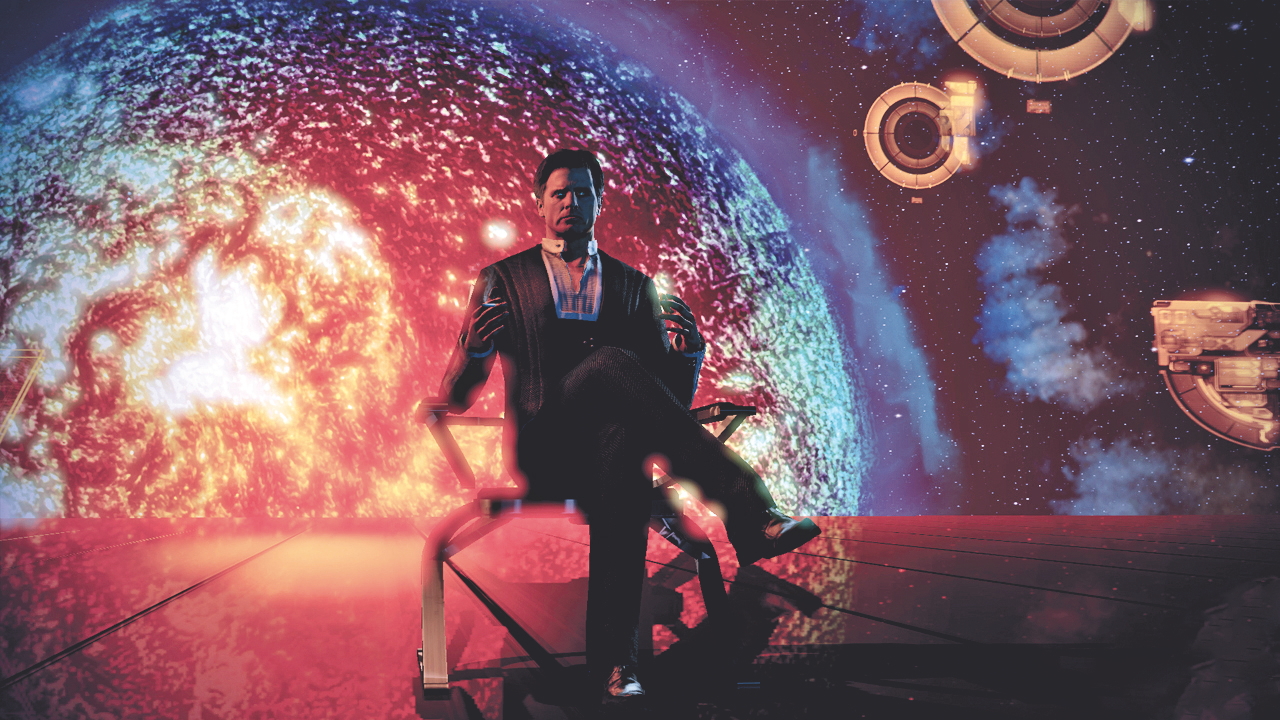
Whether it’s packing the Normandy with suitable warriors to deal with the Geth in Mass Effect, guiding Dragon Age 2’s protagonist Hawke to superstardom or learning the truth about Darth Malak in KOTOR, BioWare has always had a knack for weaving a tale through the universes that it creates.
And while there have been slip-ups from time to time, storytelling has always been a key foundation for the studio. Take Dragon Age: Inquisition, for example, and compare it to Origins; both are about fighting those nasty Darkspawn, but the latter is so much more nuanced than its six-year elder.
"If there’s one area where BioWare can be trusted, it’s in the story"
For Anthem, this means there’s a lot more potential in its story than what you might expect from the competition in the live-service space. The likes of Destiny and The Division seem to suffer from the same problem, of every damn player having to be the centre of attention, the hero of a story that's being shared by so many different players concurrently – it's a problem shared-world shooters just can't seem to overcome. Don't write Anthem off in this regard just yet though, because if there's one area where BioWare can be trusted to succeed it's in the storytelling department.
The studio is banking on the fact that it is housing the main narrative of Anthem within Fort Tarsis, a hub of sorts that only you can access in the otherwise shared-world. This is where we will see the more condensed, character-centric storytelling that BioWare is famous for delivering will emerge – it could be the factor that sets the always-online RPG apart from the rest of the competition. In fact, you can read about BioWare's attempt to flow a single-player story through a multiplayer game world right here.
Weekly digests, tales from the communities you love, and more
It’ll be exciting to see where Anthem ends up post-release, too. BioWare has only become more adept at injecting a sense of danger and peril into its games – that's something precious few studios have been able to match over the years – and all eyes will now be on whether it can do the same in Anthem's endgame.
Characters
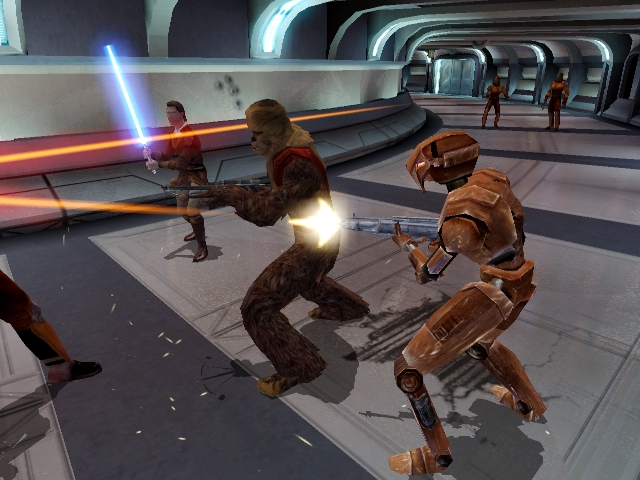
If you have every played a BioWare game in the past, then you likely already have a favourite character. Maybe you pine after the stoicism of Garrus, the constant retorts of Varric, or the bloodlust of HK-47. Perhaps you still, even now, chant ‘Go for the eyes, Boo!’ at unprompted and inappropriate moments. Either way, there’s definitely a BioWare character that fits you.
Anthem already looks set to bring some of that personality over from the developer’s history. Even just wandering around Fort Tarsis will show it to be home to a good deal of character, from the peripheral sorts just going about their day to more important NPCs that force the player into actually doing things.
It’s been a focus for the developer, though, and while it won’t be possible to actually romance any of Anthem's companion characters – thank goodness for that – the idea of building friendships, platonic relationships, and of unlocking special moments with Anthem’s roster of NPCs is something BioWare is excited to explore.
BioWare knows how to script snappy dialogue and it understand how to get the best out of voice and motion capture recording. The studio has been investing in and expanding character development through its games for 24 years – the studio isn't likely to change that now. BioWare knows how to build memorable characters, and Anthem is set to be no exception.
Considered role-playing
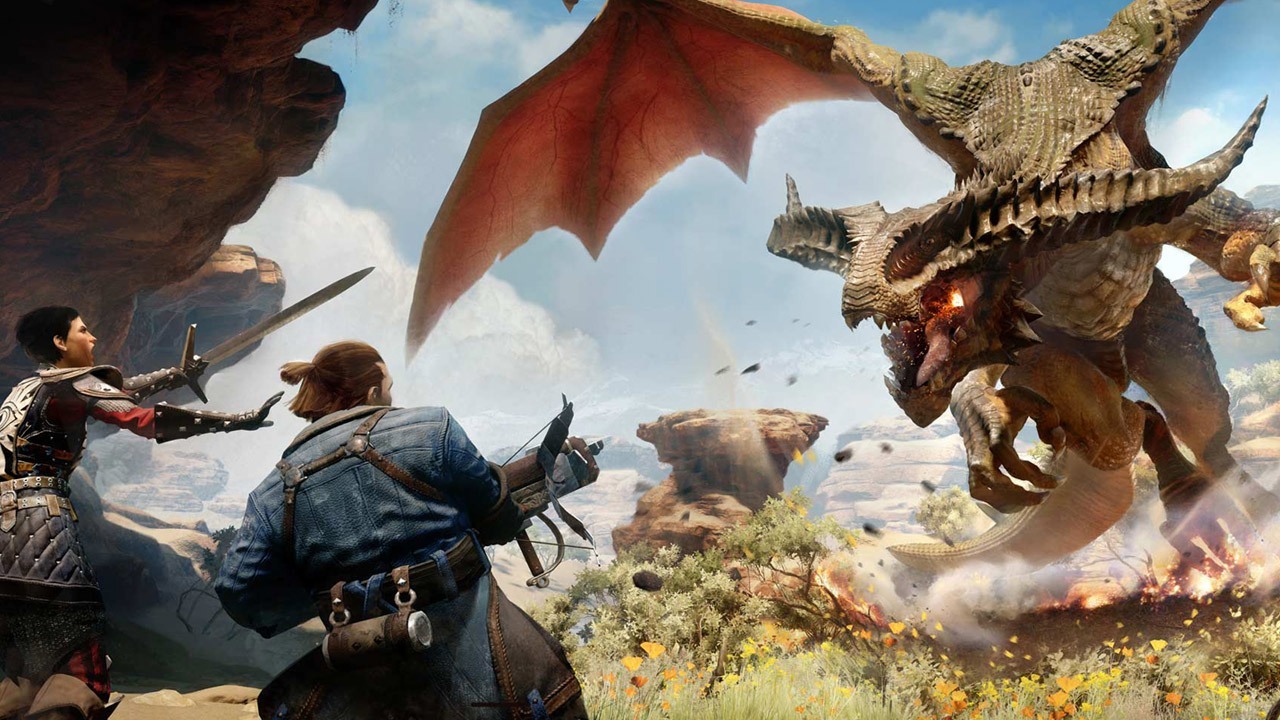
There are few RPG developers that have the reach that BioWare has, and that has been in large part to its approach to the mechanics of role-playing games. Now while its earlier work with Dungeons & Dragons titles was obviously bound by certain expectations, ever since the release of Mass Effect the developer has been finding ways of maintaining the aspects that RPG players love without overwhelming those who wouldn’t call themselves as such.
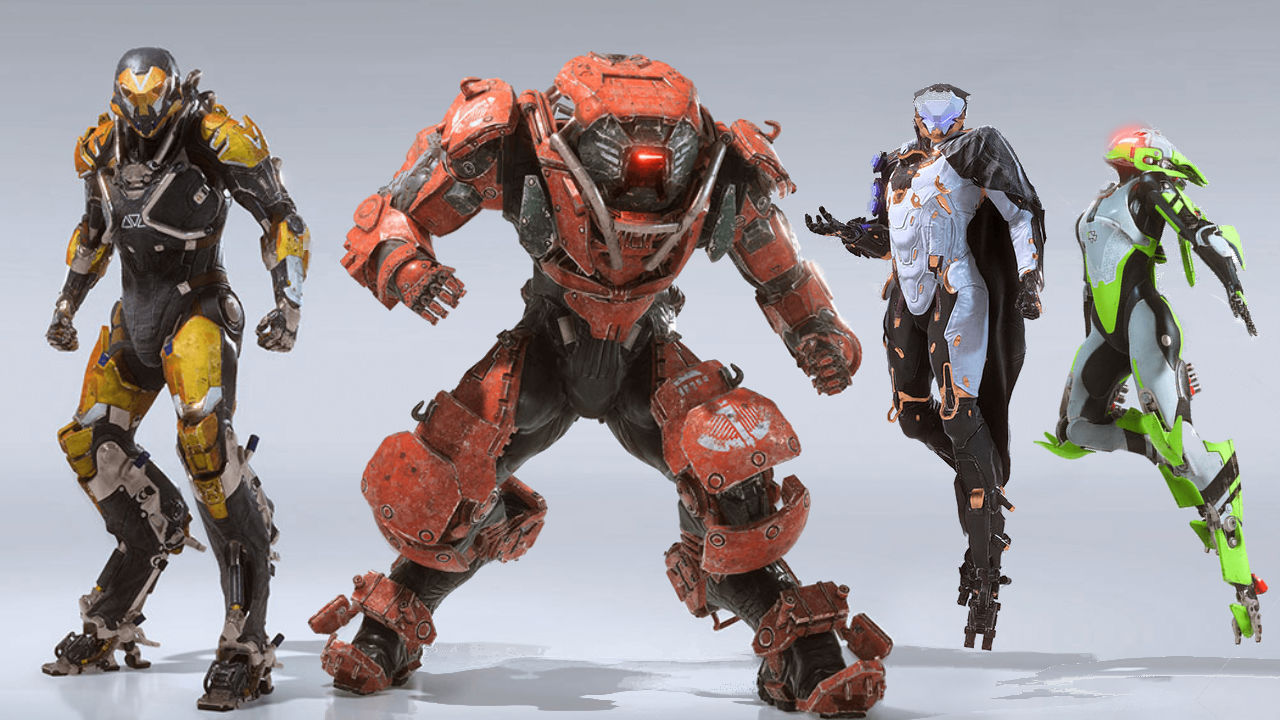
Anthem is a brand new experience from Mass Effect and Dragon Age developer BioWare. In the Anthem FAQ, we look to answer your most pressing questions on the upcoming title.
For Mass Effect that meant simplified choices, enabling a sense of progression and the thrill that comes with a new ability but without the frustration of having to figure out what it is that a new toy will actually do. Dragon Age, on the other hand, managed to smartly incorporate real-time combat with the depth of all those fantastical spells and special abilities to create something that gave hardcore nerds something to chew on while still making it optional for those that would rather avoid menus.
When it comes to Anthem, well that’s a little tougher to figure out. The loot-driven gameplay will mean that there’s always something to strive towards in your arsenal (hopefully not as arbitrarily as Destiny), while the rarer upgrades to your Javelin mech suit means the decision of what you unlock is particularly important.
Either way, the focus once again seems to be on maintaining a sense of noticeable progression to enable growth, giving players a reason to return to places they couldn’t once tackle because they were so underpowered.
Unique worlds
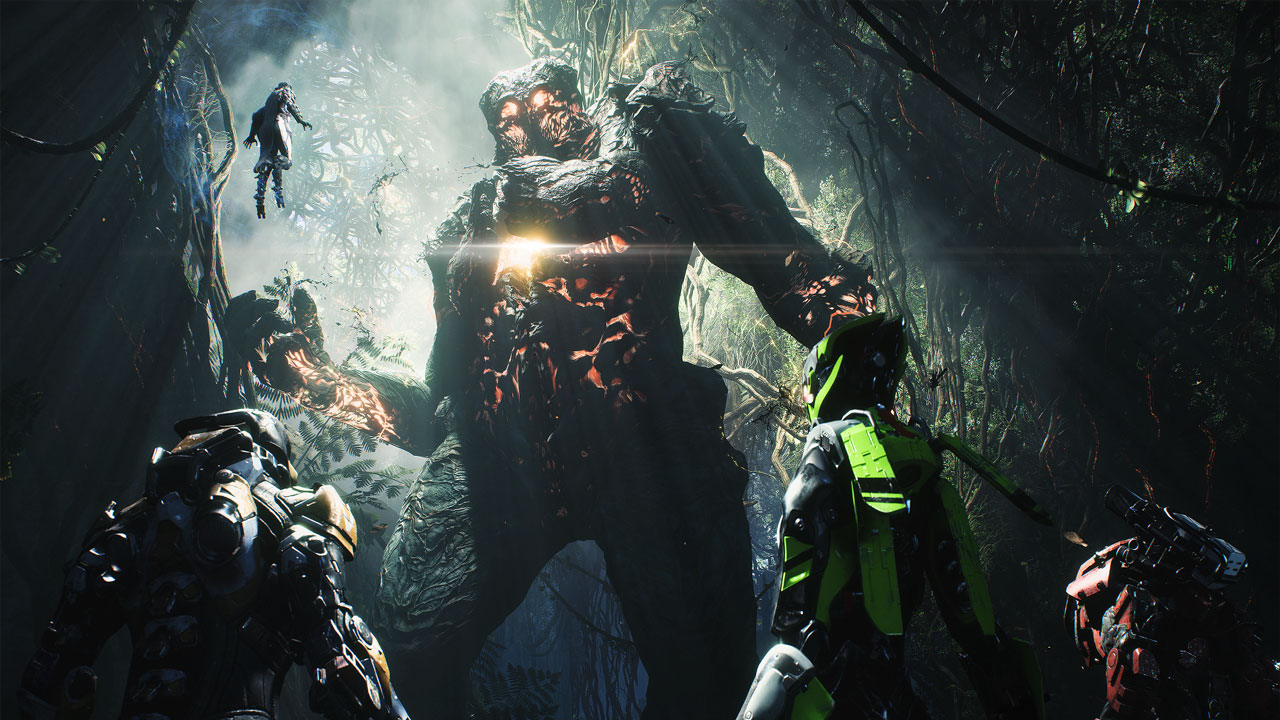
We all remember hopping aboard the Citadel for the first time and spending (literal) hours riding elevators, scanning the keepers and speaking to every new alien just to hear what tidbit of info they had to offer about the universe. Lore has been a strong aspect to all of BioWare’s games, and the depth of how far its worlds go is rarely matched.
This is important because when it feels like there’s a history to a place, a story behind every major geographical point, every unusual character trait, even every weapon, then the world that you’re playing in becomes all the more compelling.
"But what’s most interesting about Anthem is that it’s not tied to any particular trope"
Of course the whole point is to discover this for ourselves and - aside from the demo - there’s bound to be so much more than needs to be learned about Anthem’s unique and intriguing world. If you're interested in learning more, you can read our deep dive into the lore, characters and factions with two of Anthem's lead writers.
But what’s most interesting about Anthem is that it’s not tied to any particular trope. Dragon Age is Tolkienesque to a fault, Mass Effect is about as sci-fi as they come. Anthem on the other hand feels so much more distinct, so much more original; it has its sci-fi edge, of course, but blends in a new lore that shows the developer is growing in its ability to create believable worlds.
Anthem might not look like a traditional BioWare game, but at its core remains the core values that have driven the studio over the decades. Anthem may indeed be a shared-world shooter, but that has been built around the foundation of storytelling, character development, exploring a unique worlds and role-playing as a powerful hero within it.
Will Anthem be another BioWare classic? We'll find out for certain on 22 February when it launches for PC, PS4 and Xbox One.


